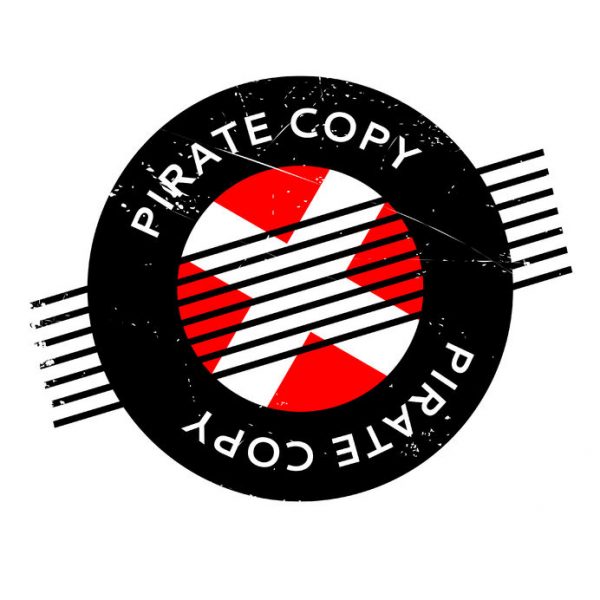Big UK ISPs Ordered to Block More Pirated Book and Journal Websites

The Publishers Association (PA) has convinced the High Court to force most of the major broadband ISPs in the United Kingdom (BT, Sky Broadband, Virgin Media, TalkTalk, EE and Plusnet) to extend and expand their existing block of websites, focusing on those that were found to facilitate internet copyright infringement (piracy) of books and journals.
At present such blocking orders, which in the UK flow from Section 97A of the Copyright, Designs and Patents Act (CDPA), aren’t cheap to bring but have over the past 15 years or so become very common. Hundreds of websites have been blocked through this approach (thousands if you include their many proxies and mirrors), which usually include file sharing (P2P / Torrent), streaming sites, Sci-Hub and those that sell counterfeit goods etc.
In this case the new order will continue the blocking of sites first blocked in 2015, but the main change this time is that it will also be extended to ‘copycat’ (mirror) domains (i.e. sites linked to the original targets and a number of newly added domains) and some new domains (e.g. Library Genesis, Z-Library and Anna’s Archive). Some previous blocking orders for different sites / industries have already introduced similar extensions.
Advertisement
The PA claims that the sites and networks, which are the subject of this order, infringe copyright on a “massive scale“. For example, the Publishers Association has identified through its Copyright Infringement Portal over 1 million copyright infringing book and journal URLs on Anna’s Archive domains. In addition, rights holders have requested delisting from Google search results of over 280 million URLs which link to “copyright-protected content made available without permission” on Anna’s Archive domains.
A Publishers Association spokesperson said:
“Expanding digital markets and technological advancement inevitably result in growth in levels of online infringement. Our members need to be able to protect authors’ works from such illegal activity. Authors need to be compensated for their work and publishers and booksellers need to be able to continue to innovate and invest in new talent and material.
We are pleased that the High Court has granted this extended order and, in doing so, recognised the damage inflicted on UK authors, publishers and booksellers by online piracy. This could not be more important than at a time when the internet is being scraped and books and journals used at scale unlawfully in the training of LLMs without compensation or acknowledgment.”
Blocking orders like this do not come cheap and some years ago Wiggin LLP revealed that an unopposed application tends to cost around £14,000 per site. On top of that the additional admin required to maintain the block and keep ISPs up-to-date with related IP changes and new URLs (Proxy Servers) comes to around £3,600 per site per year. But those figures will have changed a lot since then.
Meanwhile ISPs also incur on-going costs as part of their work to introduce the blocks. Some years ago EE suggested that a “near four figure sum” was involved with each update, while Sky Broadband hinted at a “mid three figure sum” and then roughly half that for future updates. Similarly Virgin Media pegged their own annual costs at a “low five figure sum“.
On the flip side such blocks don’t always stop the targeted websites and indeed they may even help to advertise their existence. Naturally, those who actively engage in internet piracy will easily be able to circumvent the restrictions by using all sorts of different approaches. Otherwise, the ISPs now have 10 working days from the notification to block customer from accessing the sites. The ISPs are not themselves accused of any wrongdoing.
Advertisement
Mark is a professional technology writer, IT consultant and computer engineer from Dorset (England), he also founded ISPreview in 1999 and enjoys analysing the latest telecoms and broadband developments. Find me on X (Twitter), Mastodon, Facebook, BlueSky, Threads.net and Linkedin.
« Trial Seeks to Improve Broadband on Public Transport in Swansea Bay Area






















































All this does is encourage people to go with smaller ISPs who are not victims of this nonsense. And it gives people a list of sites to get content from….
Precisely. It’s draconian, authoritarian, Orwellian, impinges on civil liberties, patronising to British people, costly (face it: we foot the bill), and ultimately completely ineffective and counterproductive to its intended purpose.
But it makes the Publishers Association get to pretend that they’re marginally more useful than a chocolate teapot, and the government gets to pretend it’s actually doing something good. Hah!
Or encourage people to use a VPN. It’s an absolute joke. My mobile provider blocks the internet archive FFS.
Not at all in my opinion. You’ll be more likely to find people subscribing to VPN services instead of switching ISP, especially because some of the larger VPN’s sponsor content creators and have considerabe advertising budgets.
I’ll add Anna’s Archive to my bookmarks. A big thank you to the Publisher’s Association for letting the world know about it.
You have to look at the cost of books, in poorer countries special editions are available, as students have to pay a fortune for textbooks. Why not have this option here? So people will go to a VPN, by-passing all restrictions. It has happened for years for those who want to watch streaming services form another country.
I really wonder who is funding these MP’s?
Lobbyists are controlling them as a good example the tobacco industry.
annas archive is great i get books from there all the time. my local physical library closed already years ago. sci-hub is great to, got me thru uni
A VPN is an absolute necessity to get around these tyrants who claim the prisons are full so they release actual violent criminals to make room to arrest you for online posts
I’ll start seeding more to offset.
Is there a list of sites that need to be blocked by court orders somewhere?
When switching from AAISP to Virgin (move off FTTC) I was surprised to find a bunch of sites blocked. Ended up paying for the £10 AA VPN to retain use. If there was a list somewhere it’d make it easier to maintain in opnsense!
Yes, at least Sky and Virgin Media have one, which is only for their court ordered blocks (separate from parental controls).
https://www.sky.com/help/articles/our-approach-to-protecting-copyright
https://www.virginmedia.com/help/list-of-court-orders
You could simply use a different DNS server. I’d recommend Quad9.
Never use ISP DNS servers. But that is, ultimately, as complicated as these pathetic filter lists are.
They in the same trap as the rest of the media industry, look at the prices of ebooks and its clear to see the problem, with ebooks they dont have the manufacturing excuse.
It always amazes me how scribd.com never gets blocked despite being a hotbed of copyright infringement, which it profits majorly from.
It’s not the job of ISP to block these. (Internet should be open for people to choose what they want to do)
Civil matter so it’s up to the rights holders to go after people & the same with if people commit crimes online not ISP job.
Censorship is getting ridiculous we are turning into Asia and the way its heading is you will be forced to only be bale to go to any sites on a whitelist.
whack-a-mole..
DNS Fast-flux / Proxying round-robin, etc, etc these tactics stand no chance. Not forgetting all one needs is the DHT scrapped of the content to download later you can block hashed index’s its impossible!!!
Freedom of information – no only where there’s monetisation to corporations, not enough free is free. Perhaps if prices were lower there would be less subterfuge?
And how would this relate to libraries where one can go there then copy at your will.
Maybe car ret companies will be held responsible for what rentee’s do / could do with a vehicle, like transport dodgy goods while rented?
Wheres the equivalency of guilt/persecution? Maybe some corporations will go after tobacco companies for all teh damage they cause?
So in your world authors, researchers, editors, etc, shouldn’t get paid for their work they should be doing it for free: got it.